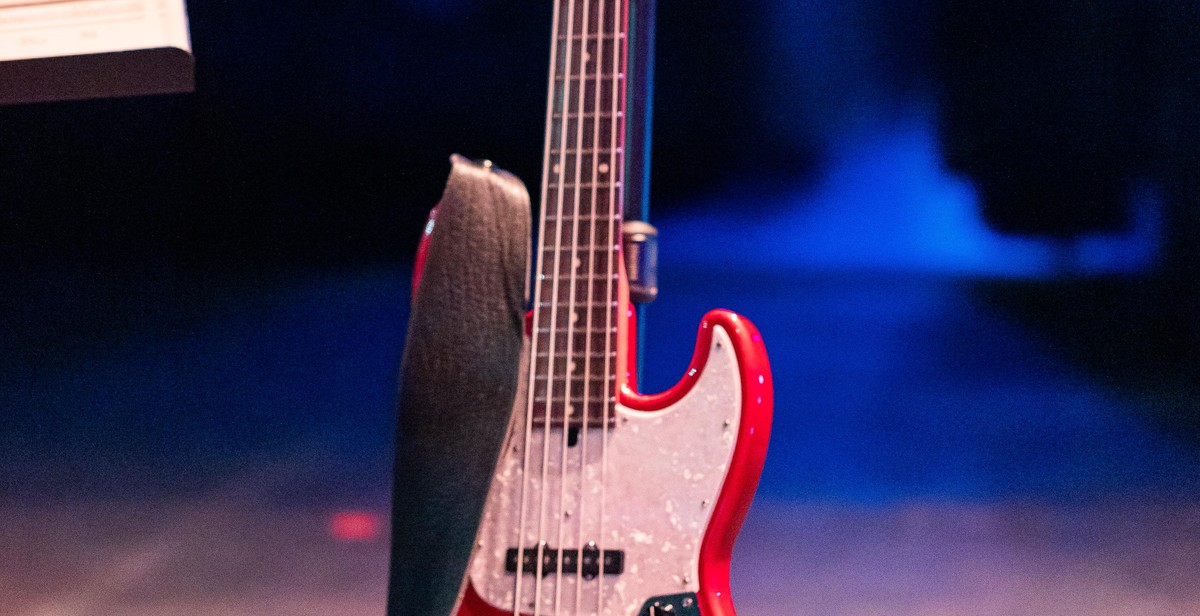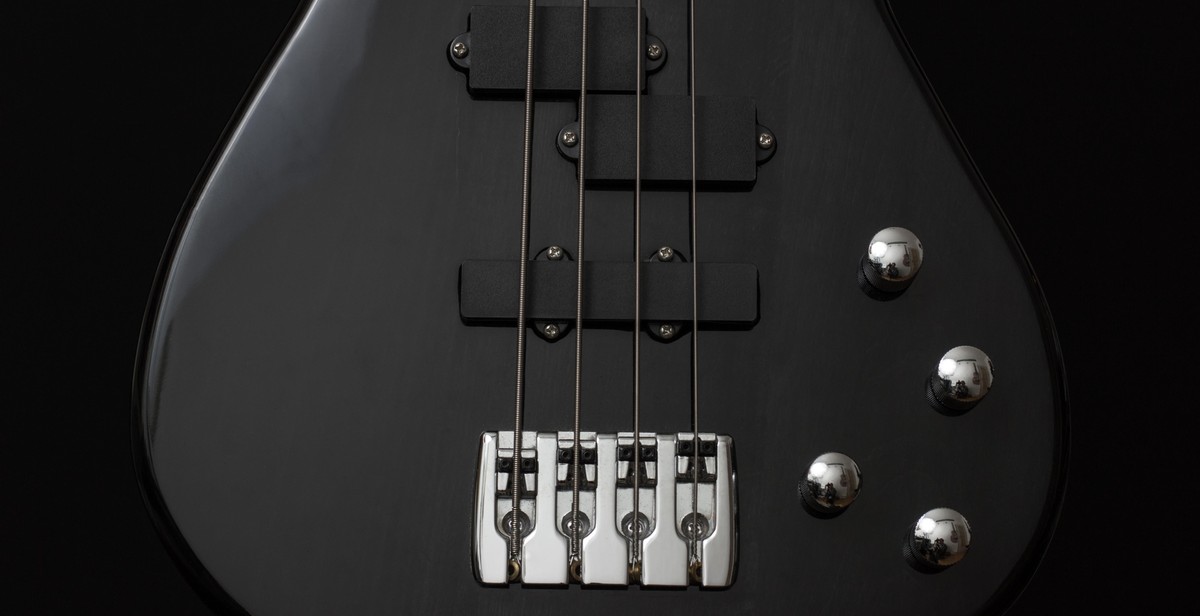Introduction
An electric bass guitar is a stringed instrument that is commonly used in various music genres, including rock, jazz, funk, and blues. It is designed to produce low-pitched sounds, which provide a solid foundation for the rest of the band. Choosing the right electric bass guitar for your music genre is critical to achieving the right sound and feel for your performances.
What is an Electric Bass Guitar?
An electric bass guitar is a variation of the traditional acoustic bass guitar that uses electronic pickups to amplify the sound produced by the strings. It typically has a solid body made of wood or other materials and is played using a combination of plucking and strumming techniques. The strings on an electric bass guitar are usually thicker than those on a traditional guitar, which allows for a deeper and more resonant sound.
When choosing an electric bass guitar, there are several factors to consider, including the type of music you’re playing, your skill level, and your budget. Each of these factors can have a significant impact on the type of electric bass guitar that is best suited to your needs.
- Music Genre: Different music genres require different types of bass guitars. For example, a jazz bass guitar will have a different sound and feel than a rock bass guitar. Consider the type of music you’ll be playing most often when choosing your electric bass guitar.
- Skill Level: If you’re a beginner, you may want to start with a more basic electric bass guitar that is easier to play and learn on. As you advance, you may want to upgrade to a more advanced model that offers more features and capabilities.
- Budget: Electric bass guitars can vary widely in price, from a few hundred to several thousand dollars. Consider how much you’re willing to spend when choosing your electric bass guitar.
By taking these factors into consideration, you can choose the right electric bass guitar for your needs and start creating the perfect sound for your music genre.

Factors to Consider When Choosing an Electric Bass Guitar
Choosing the right electric bass guitar for your music genre is crucial to achieving the perfect sound. Here are some factors to consider when selecting an electric bass guitar:
Music Genre
The type of music genre you play will determine the type of electric bass guitar you should choose. For instance, if you play rock music, you might want a bass guitar with a solid body and active pickups that can produce a punchy sound. On the other hand, if you play jazz, you might want a bass guitar with a hollow body and passive pickups that can produce a warm, mellow sound.
Body Style
The body style of an electric bass guitar can affect its sound and playability. Some common body styles include:
- Solid body: Offers a bright, punchy sound and is ideal for rock and metal genres.
- Semi-hollow body: Offers a warm, mellow sound and is ideal for jazz and blues genres.
- Hollow body: Offers a deep, rich sound and is ideal for acoustic and jazz genres.
Number of Strings
The number of strings on an electric bass guitar can affect its sound and playability. Some common options include:
- 4-string: Offers a classic bass sound and is ideal for most music genres.
- 5-string: Offers a wider range of notes and is ideal for genres that require lower notes, such as metal and jazz.
- 6-string: Offers even more range and is ideal for advanced players who need a wider range of notes.
Pickups
The pickups on an electric bass guitar can affect its sound and tone. Some common types of pickups include:
- Single-coil: Offers a bright, clear sound and is ideal for rock and pop genres.
- Split-coil: Offers a warm, mellow sound and is ideal for jazz and blues genres.
- Humbucker: Offers a deep, rich sound and is ideal for metal and rock genres.
Neck and Fretboard
The neck and fretboard of an electric bass guitar can affect its playability and comfort. Some common options include:
- Neck shape: Different neck shapes can affect the way the guitar feels in your hands. Some common shapes include C-shaped, U-shaped, and V-shaped.
- Fretboard material: Different fretboard materials can affect the guitar’s tone and playability. Some common materials include rosewood, maple, and ebony.
Hardware and Electronics
The hardware and electronics on an electric bass guitar can affect its sound and playability. Some common options include:
- Bridge: Different types of bridges can affect the guitar’s intonation and sustain. Some common types include fixed bridges, floating bridges, and tremolo bridges.
- Tuners: Good quality tuners can help keep your bass guitar in tune and make it easier to play.
- Preamp: A built-in preamp can help shape your guitar’s tone and boost its signal.
| Factor | Options |
|---|---|
| Body Style | Solid, semi-hollow, hollow |
| Number of Strings | 4-string, 5-string, 6-string |
| Pickups | Single-coil, split-coil, humbucker |
| Neck and Fretboard | Neck shape, fretboard material |
| Hardware and Electronics | Bridge, tuners, preamp |

Choosing the Right Electric Bass Guitar for Different Music Genres
When it comes to choosing an electric bass guitar, there are a lot of options available in the market, each with its own unique sound and features. However, the choice of the right electric bass guitar becomes even more crucial when it comes to different music genres. Whether you are into rock, jazz, funk, country, or pop, choosing the right electric bass guitar can make a huge difference in the sound and feel of your music. In this article, we will guide you on how to choose the right electric bass guitar for different music genres.
Rock and Heavy Metal
Rock and heavy metal music require a bass guitar that can produce a powerful and aggressive sound. The ideal bass guitar for rock and heavy metal should have a solid body construction, high-output pickups, and a fast-playing neck. Additionally, a bass guitar with active electronics can provide a wider range of tonal options. Some popular bass guitars for rock and heavy metal include the Fender Precision Bass, Music Man StingRay, and the Gibson Thunderbird.
Jazz and Blues
Jazz and blues music require a bass guitar that can produce warm and mellow tones. The ideal bass guitar for jazz and blues should have a hollow or semi-hollow body construction, single-coil pickups, and a smooth-playing neck. Additionally, a bass guitar with passive electronics can provide a more natural and organic sound. Some popular bass guitars for jazz and blues include the Fender Jazz Bass, Gibson ES-335 Bass, and the Epiphone Jack Casady.
Funk and R&B
Funk and R&B music require a bass guitar that can produce a tight and punchy sound. The ideal bass guitar for funk and R&B should have a solid body construction, single-coil pickups, and a fast-playing neck. Additionally, a bass guitar with active electronics can provide a more modern and cutting-edge sound. Some popular bass guitars for funk and R&B include the Music Man StingRay, Fender Precision Bass, and the Yamaha BB Series.
Country and Bluegrass
Country and bluegrass music require a bass guitar that can produce a bright and twangy sound. The ideal bass guitar for country and bluegrass should have a solid body construction, single-coil pickups, and a smooth-playing neck. Additionally, a bass guitar with passive electronics can provide a more natural and authentic sound. Some popular bass guitars for country and bluegrass include the Fender Precision Bass, Music Man StingRay, and the Rickenbacker 4003.
Pop and Top 40
Pop and top 40 music require a bass guitar that can produce a versatile and dynamic sound. The ideal bass guitar for pop and top 40 should have a solid body construction, both single-coil and humbucking pickups, and a fast-playing neck. Additionally, a bass guitar with active electronics can provide a more modern and contemporary sound. Some popular bass guitars for pop and top 40 include the Fender Jazz Bass, Music Man StingRay, and the Ibanez SR Series.
| Music Genres | Ideal Bass Guitar Features | Popular Bass Guitar Models |
|---|---|---|
| Rock and Heavy Metal | Solid Body, High-Output Pickups, Fast-Playing Neck, Active Electronics | Fender Precision Bass, Music Man StingRay, Gibson Thunderbird |
| Jazz and Blues | Hollow or Semi-Hollow Body, Single-Coil Pickups, Smooth-Playing Neck, Passive Electronics | Fender Jazz Bass, Gibson ES-335 Bass, Epiphone Jack Casady |
| Funk and R&B | Solid Body, Single-Coil Pickups, Fast-Playing Neck, Active Electronics | Music Man StingRay, Fender Precision Bass, Yamaha BB Series |
| Country and Bluegrass | Solid Body, Single-Coil Pickups, Smooth-Playing Neck, Passive Electronics | Fender Precision Bass, Music Man StingRay, R
ConclusionChoosing the right electric bass guitar for different music genres can be a daunting task, but with the right information, you can make an informed decision. Consider the GenreWhen choosing an electric bass guitar, it’s important to consider the genre of music you’ll be playing. Different genres require different types of bass guitars, so it’s important to choose one that suits your needs. Consider the ToneThe tone of your bass guitar is also an important factor to consider. The right tone can make or break your performance, so it’s important to choose a bass guitar with a tone that suits your playing style and the genre of music you’ll be playing. Consider the BudgetElectric bass guitars come in a wide range of prices, so it’s important to consider your budget when making a purchase. While it’s tempting to go for the most expensive option, it’s important to choose a bass guitar that fits within your budget and meets your needs. Final ThoughtsChoosing the right electric bass guitar for different music genres can be a challenging task, but with the right information, you can make an informed decision. Consider the genre, tone, and budget when making your purchase, and don’t be afraid to try out different options before making a final decision. With the right bass guitar, you can take your music to the next level and achieve your full potential as a musician. |
